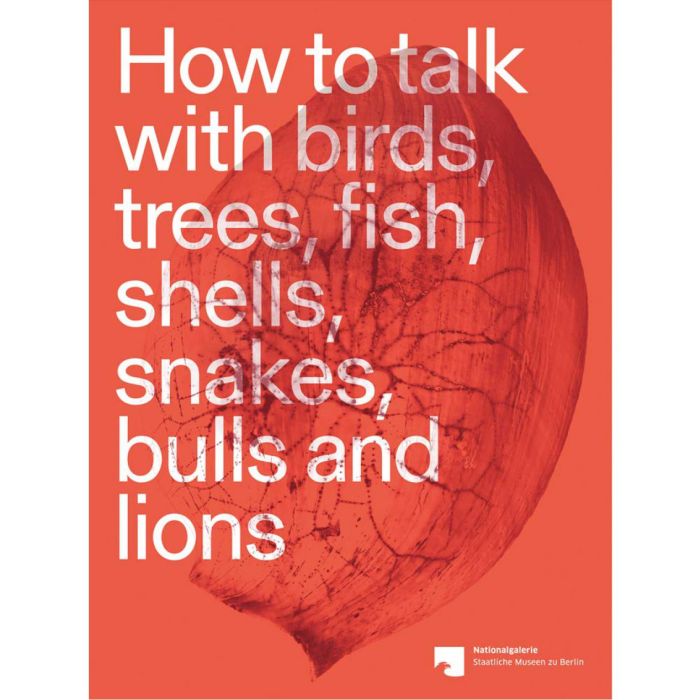My Cart
Your cart is empty
Looks like you haven't made your choice yet.
- Subtotal
How to Talk with Birds, Trees, Fish, Shells, Snakes, Bulls and Lions

- Verlag Kettler (ACC)
- Antje Majewski
More Information
| Publisher | Verlag Kettler (ACC) |
|---|---|
| ISBN | 9783862067169 |
| Author(s) | Antje Majewski |
| Publication date | March 2019 |
| Edition | Paperback |
| Dimensions | 279 x 210 mm |
| Pages | 256 |
| Language(s) | Eng./ Germ. ed. |
Description
Collaborative and trans-disciplinary artist Antje Majewski (born 1968 in Marl, Germany) has opened an ongoing dialogue with colleagues from Brazil, Cameroon, China, Colombia, France, Hungary, Poland, and Senegal, and invited them to contribute works exploring the reciprocal relationships between human and beyond-human beings in a poetic way. This book stems from this conversation between the participating artists and their interactions with others.
The project and its title emerged from a conversation between Senegalese painter, sculptor, performance artist, playwright and poet Issa Samb and Antje Majewski under the trees in his courtyard in Dakar. Sadly, both Issa Samb and the trees are gone today, but the discussion set a process, a laboratory in motion. It was the start of meetings, travels, and conversations between Majewski and the invited artists.
How to talk with birds, trees, fish, shells, snakes, bulls and lions takes artists' interactions with endangered places, societies and environments as points of departure. The presented works often focus on specific places that have been destroyed, altered, or are seriously imperiled by encroaching capitalism, colonialism, and other detrimental human influences. Videos, large-scale installations, sculptures, manifestos, poems, photographs, drawings, and paintings address delicate socio-ecological systems, of which human beings are always a part.
The artists speak from personal positions of dissidence to today's dominant modes of interaction with the environment - whether feminist, decolonising, situational, and by proposing radically non-capitalist ways of interacting with humans, other living beings, and matter.

How to Talk with Birds, Trees, Fish, Shells, Snakes, Bulls and Lions
